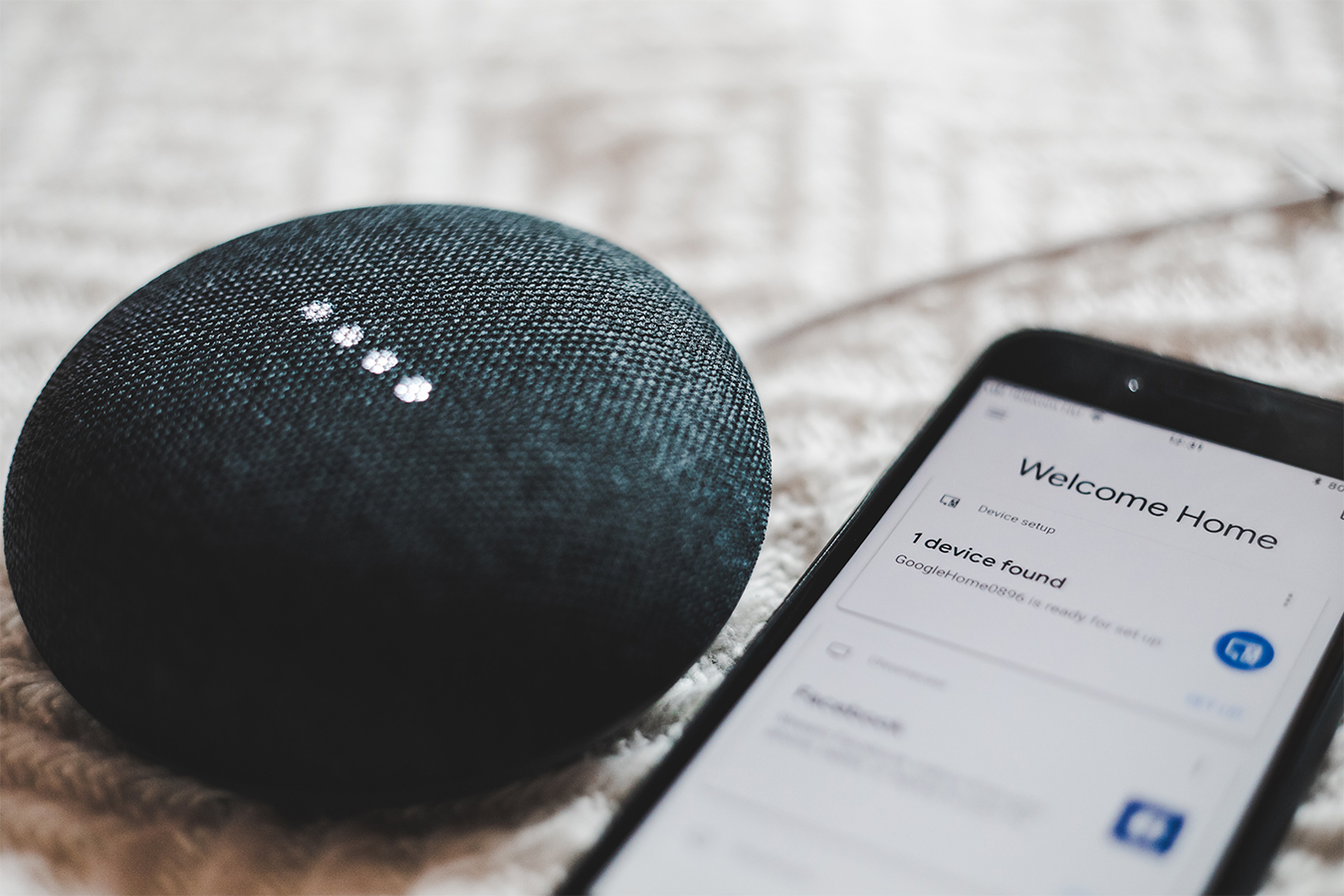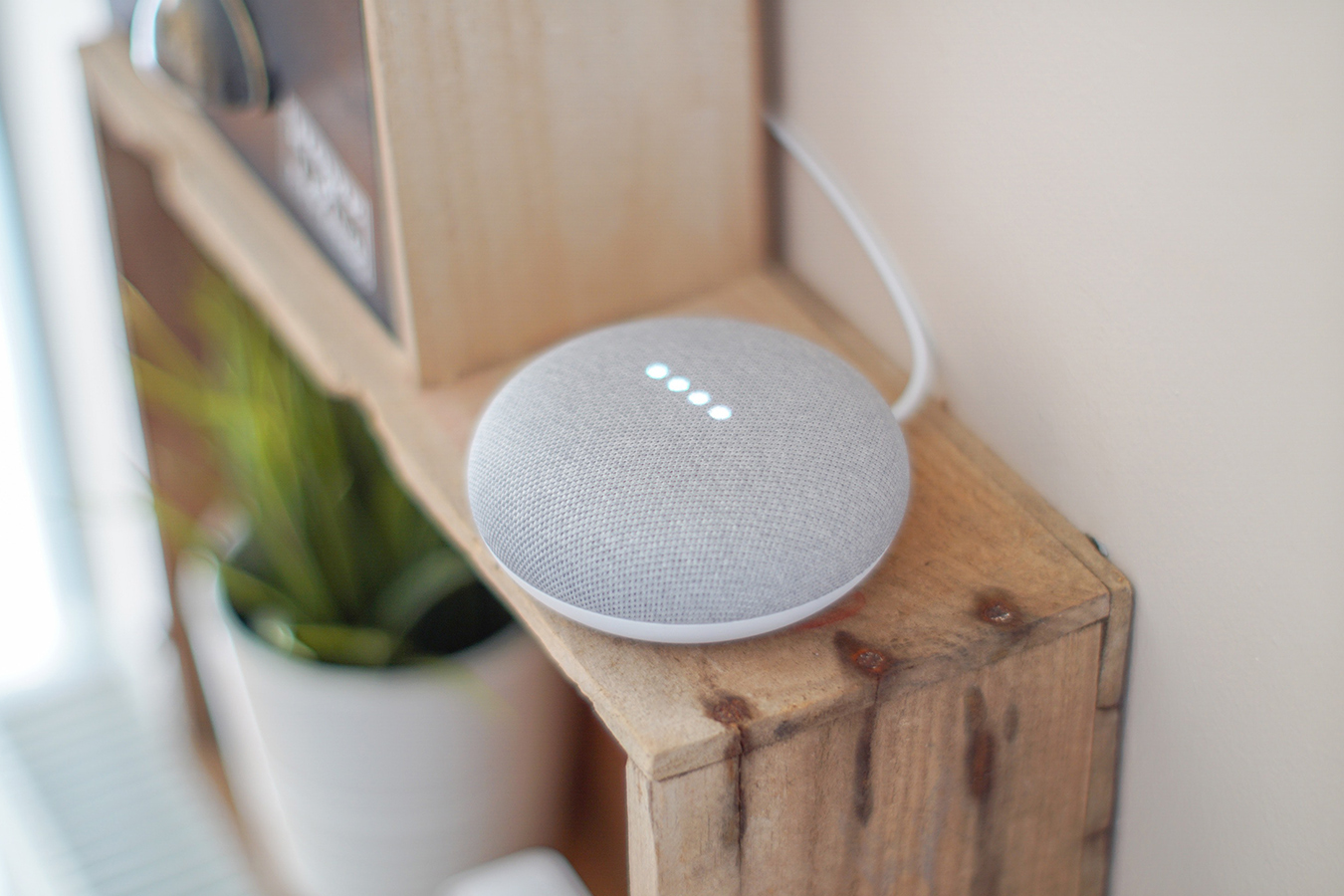Hey Siri! Okay, Google! Alexa! You might be familiar with the calls to attention, or wake words of the three main virtual assistants and their smart speakers and if you’re not, you probably soon will be. Apple, Google and Amazon are in control of a rapidly growing smart speaker market as more iterations of the devices are added. It’s not just more accessible models like the Echo Dot, Google Home Mini or the rumors surrounding a new Apple HomePod that have led to the growing uptake of smart technology, but also the amount of other useful smart devices around. From smart bulbs to robot lawn mowers, smart technology is making people’s lives a bit easier. Your voice assistant can get the best out of all these devices and become the technological hub of your smart home, allowing for home automation, voice-controlled entertainment systems, and even advanced home security. Read on to find out which speaker and virtual personal assistant is the best one for you.
What do Smart Speakers do?
All of the smart assistants can set timers, play music (as long as you have a music streaming service), answer questions, give directions and read the news. You can use them to control your smart bulbs, smart blinds, robot vacuums, smart plugs and many more types of nifty smart devices. You can even set up routines so certain words or phrases trigger multiple devices and do different things. You can set it up so saying something as simple as ‘good night’ will turn off all the lights in the house, stop all the music playing, and lock all your doors. The more smart devices you get the more you get out of your smart speaker.
Which One Is Right For You?
Apple’s Siri
It’s hard to talk about Siri as a virtual home assistant without talking about the Apple Homepod. This is the only speaker that directly supports Siri. A quick mention to the Sonos One, a very good speaker in its own right and it can support Siri through an Airplay connection, but it’s not a Siri speaker. Apple was late to the home speaker game, despite Siri showing up in 2011. The HomePod and Homekit was released later than Google and Amazon’s versions. Despite that, people who are already Apple users can get the best out of this home system. The HomePod itself boasts the best sound of the three company’s speakers but at the highest cost. This is really the one for people who’ve got more than one Apple device and use Apple Music. The likes of Spotify are supported through Airplay streaming from another Apple device, like an iPhone or iPad but it’s just more awkward than using the already-integrated Apple Music. With the use of scenes and Siri shortcuts, you can build advanced routines just like the others, so Siri can be the heart of your smart home ecosystem.
Reasons to buy:
- If high audio quality from a smart speaker is what you’re looking for
- If you want to build an ecosystem around your existing Apple products
- If you’re concerned about your privacy, initiatives like HomeKit’s secure video might mean Apple is more choosy about which smart devices are supported
Google Assistant
Google’s Assistant is definitely the most responsive virtual assistant. Google’s work in the search game lends itself perfectly to Google Assistant’s questioning and answering skills. It supports a huge range of devices but not as many as Alexa. The Google-made speakers are the weakest of the three, however it boasts excellent support for a huge range of smart devices. Google also has a range of smart speakers like the Nest Mini, Google Smart Speaker and Google Home Max. Beyond this, there’s a lot of third party support from other smart speakers like the Sonos One for good sound quality at a reasonable price, or the JBL Link 20 with Bluetooth-enabled portability.
Reasons to buy
- If you want the best AI to interact with and answer your questions
- If you have Google devices like Chromecast and Android phones
Amazon Alexa
Alexa and its accompanying Echo speaker launched as the first smart speaker in 2014 and has since built up a huge range of skills and the highest amount of supported devices. It also gives the best shopping experience and ties in with an Amazon account to great effect. You can use it to shop and check your orders, and it even lets you know when deliveries are completed. Tests have shown it doesn’t perform as well responding to voice commands as Siri or Google but that’s understandable because of Google’s access to data and how long Siri’s been around.
Reasons to buy
- If you want the fullest range of support for devices and years of built-up skills
- If you’re already making use of a lot of Amazon services (Prime, Amazon Music)
Honorable Mentions
Harman Kardon Invoke uses Microsoft’s Cortana and Samsung’s Galaxy Home supports Samsung’s assistant Bixby. Both are competent enough for simple tasks but they’re far behind in the game at this point.
A Little Look to the Future
You might have heard of the Internet of Things. It’s a term that refers to the interconnectedness of devices, objects and appliances so they’re capable of sharing and receiving data. This has largely been enabled by faster internet speeds and data-driven technology and will continue to grow with the advent of 5G. 5G is going to change the game completely. Latency might become a thing of the past. Anyone who’s used Alexa, Siri or Google before can see that there’s a moment before they respond to your query — sometimes that moment stretches on to the point you start asking the question again. And when you have a complicated system of devices, delays of any kind can be a lot more frustrating. 5G promises to change all this, offering a more seamless experience through lower latency and much higher speeds.
The best voice assistant for you is probably an easy question to answer. There’s not much between the main three players, Apple, Google and Amazon. The artificial intelligence of the three is improving all the time, with Google leading on that front at the moment. Privacy and sound quality lie with Apple, and the most varied and complete experience is with Amazon. It’s more about what you value at this stage than what’s good or bad.
With a background in psychology and sociology, love of football, literature, travel and music, Aonghus had always tried to be trendy, but then the trends changed.




